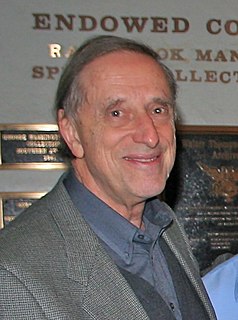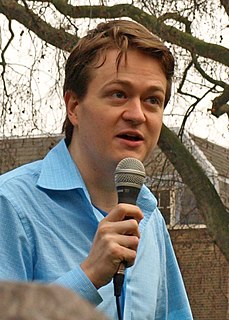A Quote by T. D. Jakes
Unforgiveness denies the victim the possibility of parole and leaves them stuck in the prison of what was, incarcerating them in their trauma and relinquishing the chance to escape beyond the pain.
Related Quotes
What do you do when it seems as if people want to stay in their pain. They have a story to tell and they tell you every chance they get. Well, believe it or not, they may like where they are. Our job is to leave them there. You can point the way out of pain, but you cannot force them to get out. You can support the move beyond their limitations, but you cannot make the move for them.
I have claimed that Escape is one of the main functions of fairy-stories, and since I do not disapprove of them, it is plain that I do not accept the tone of scorn or pity with which 'Escape' is now so often used. Why should a man be scorned if, finding himself in prison, he tries to get out and go home? Or if he cannot do so, he thinks and talks about other topics than jailers and prison-walls?
Torture presupposes, it requires, it craves the abrogation of our capacity to imagine others suffering, dehumanizing them so much that their pain is not our pain. It demands this of the torturer, placing the victim outside and beyond any form of compassion or empathy, but also demands of everyone else the same distancing, the same numbness.
The opposite of addiction is human connection. And I think that has massive implications for the war on drugs. The treatment of drug addicts almost everywhere in the world is much closer to Tent City than it is to anything in Portugal. Our laws are built around the belief that drug addicts need to be punished to stop them. But if pain and trauma and isolation cause addiction, then inflicting more pain and trauma and isolation is not going to solve that addiction. It's actually going to deepen it.
Sure, you can choose the safety and predictability of the cage, forfeiting the adventure God has destined for you. But you won't be the only one missing out or losing out. When you lack the courage to chase the Wild Goose, the opportunity costs are staggering. Who might not hear about the love of God if you don't seize the opportunity to tell them? Who might be stuck in poverty, stuck in ignorance, stuck in pain if you're not there to help free them? Where might the advance of God's kingdom in the world stall out because you weren't there on the front lines?
While it is tempting to believe that you are the victim of certain people or forces beyond your control, A Course in Miracles teaches you to recognize that you are not a victim. Through the grace of God, you are lifted above and beyond any forces-internal or external-that threaten to limit you. Knowing you're not a victim is a major form of personal empowerment.
Pain does two things: It teaches you, tells you that you're alive. Then it passes away and leaves you changed. It leaves you wiser, sometimes. Sometimes it leaves you stronger. Either way, pain leaves its mark, and everything important that will ever happen to you in life is going to involve it in one degree or another.






































